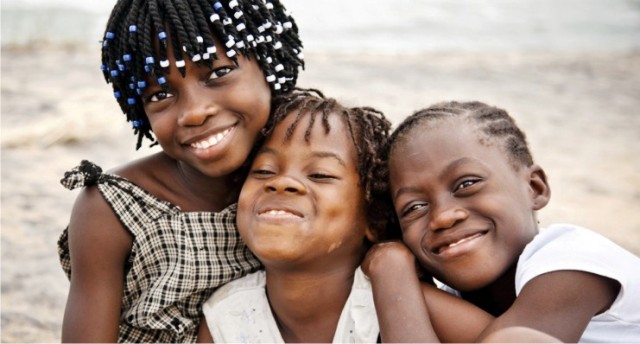Editorial
A Case For The Girl-Child

The plight of the Girl-Child in the world,
especially in Sub-Saharan Africa,
particularly some cultures in Nigeria is a sad commentary of systemic dehumanisation, discrimination, emotional torture, deprivation, rights denial, near-frequent harassment and intimidation. Subjugated primarily into second class citizenship, the common view, even among parents over the years, has remained that a girl’s place ends in the kitchen.
That being the case, investment in the girl child’s education seems to them a waste and the delay in marrying her out early, to take her place in the kitchen, a cultural misstep. In some cultures, girls below 10 years are given out in marriage and in months become mothers with its attendant health challenges.
A major risk is that, with no prior empowerment or capacity building on account of lack of education or life skills, such a girl becomes a problem not only to herself but to society, in the event of early widowhood. They are then forced to join the army of destitute citizens who litter major cities and towns begging for alms to survive.
The vulnerability of the girl child in Nigeria can best be felt in the number of rape cases, most of them unreported for fear of stigmatisation, abductions and imposition of religion. Some are not only pushed into early marriage but also forced to embrace the religion of her forced husband.
The case of the Chibok school girls abducted April 14, 2014, the recent release of 21 and high expectations for another 83 others, is a sad reminder of the painful and near helpless vulnerability of the girl-child that requires society’s empathy. The worth of a given society is judged not by the affluence of its most powerful members but indeed the weakest part of societal chain, which the girl-child represents.
Happily, civil society groups and professional organisations in Nigeria, like the Federation of Female Lawyers (FIDA) have, for sometime now, not merely helped to sensitise society about the need to restore the self worth of the girl-child but also helped in her defence against predatory behaviours of some red-eyed males.
The experience of the girl-child in Nigeria is indeed a disturbing spectrum and a window into the unwholesome plight of her ilk elsewhere in the world, and has over the years, engaged the attention of the United Nations. To address the fluctuating fortunes of the girl-child, especially in under-developed countries and other dictatorships, the UN set aside October 11, every year as a platform for focusing proper attention on the problem.
This year’s observance, with the theme: “Girls Progress – Goals Progress: A Global Data Movement’ was intended to have a comprehensive grip of the subject matter through appropriate data gathering. This is because, of the over 70 percent of the 1.1 billion girls that daily face the dehumanising experiences, less than 20 percent is actually reported. It could even be far less.
The Tide, believes that leveraging on this year’s observance, which also coincides with the release of 21 Chibok school girls, abducted since 2014, will help sustain the momentum. It is expected that governments at all levels would use the special day as a spring board to launch the girl-child to her place of glory and restore her self worth.
Some ways of achieving that would be to make girl-child education free and compulsory in every part of the country; outlaw early marriage; establish skills-acquisition and craft development centres. In addition to these, the girl-child should be encouraged to take leadership positions very early in life as a sure way of boosting her confidence.
That may however, only succeed when the girls are obliged the opportunity of under-studying female role models, in different sectors, especially in politics. A situation where, the female politician, no matter her qualifications, still lacks the capacity to aspire to certain public offices may well remain an impediment towards realising the dreams of the girl-child.
The Tide is, however, optimistic that if attention the recently released Chibok school girls are getting from the Federal Government, is allowed to trickle down, it would, without a doubt, hasten the reversal of the girl-child’s horrific story of disillusionment to that of hope.
More importantly, it will complement the call for action for increased investment in collecting and analysing girl-focused, girl-relevant, sex-disaggregated data. One year into the 2030 agenda for sustainable development, improving data on girls and addressing the issues that are holding them back is critical for fulfilling the Sustainable Development Goals.
Editorial
For A Prosperous 2026

Editorial
Task Before New Defence Minister
Editorial
HYPREP And The Collapsed Water Tank

-
Business24 hours ago
Industrialism, Agriculture To End Food Imports, ex-AfDB Adviser Tells FG
-

 Politics23 hours ago
Politics23 hours agoEFCC Alleges Blackmail Plot By Opposition Politicians
-
Rivers24 hours ago
Rivers Police Commissioner Condemns Vigilante Group Over Aluu Attack
-
Politics1 day ago
Bayelsa APC Endorses Tinubu For Second Term
-
Business24 hours ago
Cashew Industry Can Generate $10bn Annually- Association
-
Politics1 day ago
Datti Baba-Ahmed Reaffirms Loyalty To LP, Forecloses Joining ADC
-
Rivers24 hours ago
KALCCIMA Inaugurates New Executive Council … Pledges Renewed Drive For Kalabari Economic Growth
-
Business23 hours ago
AFAN Unveils Plans To Boost Food Production In 2026

